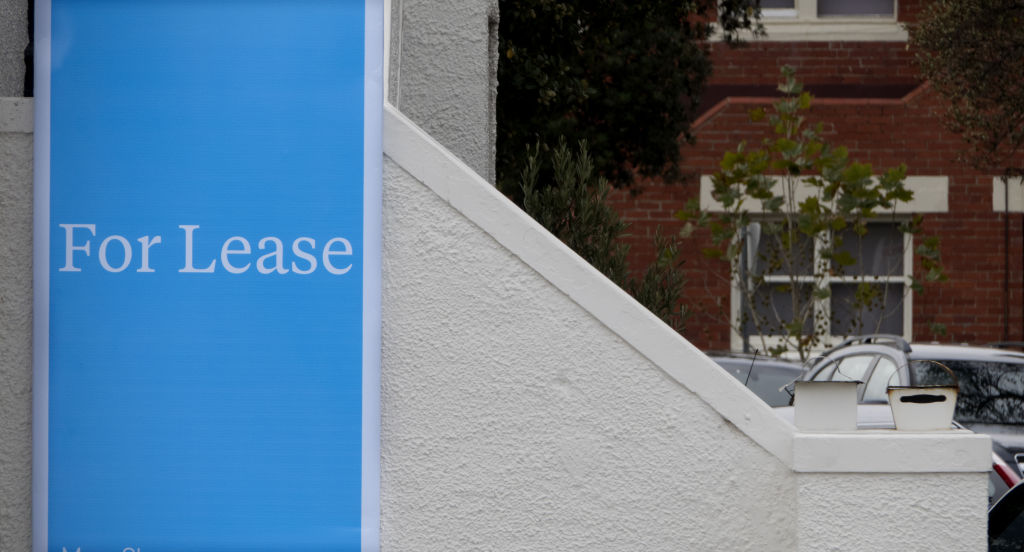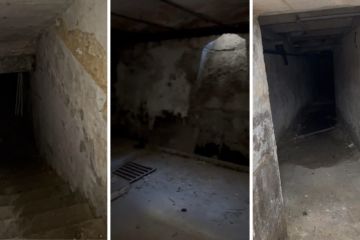What the ACT government’s temporary COVID-19 measures mean for landlords and tenants

The ACT government has announced temporary support measures to provide some relief for landlords and tenants whose health or finances have been impacted by the coronavirus outbreak.
The $5.25 million commitment is aimed to help both commercial and residential landlords and tenants.
As part of the territory’s ongoing lockdown, which has been extended to September 17, a number of short-term changes were made to the Residential Tenancies Act 1997 with the commencement of the Residential Tenancies (COVID-19 Emergency Response) Declaration 2021 on Thursday.
The new measures will be available to households where one or more rent-paying household member has stopped earning income or had a significant reduction in income since lockdown was introduced on August 12.
Any household that has been impacted by COVID-19, including a member of the home who has been ill with COVID-19 or a member who has carer responsibilities for a family member ill with the virus — will also be eligible for the support measures.
So, what does the package mean for you, and how will it affect you?
I rent my home and am unable to meet my next repayment. Is there help for me?
The ACT government has implemented a 12-week moratorium on evictions for COVID-19-affected households. What this means is that households unable to meet rent repayments because they are ill with COVID-19 or unable to work because of the lockdown will not be evicted from their property.
The territory government has also introduced a freeze on rental-price increases for affected households. Residential landlords and tenants are encouraged to negotiate reduced rent, occupancy fees or defer rent payments.
“[These] residential tenancy measures will support these Canberrans by ensuring they do not become homeless during the moratorium period,” said ACT attorney-general Shane Rattenbury.
“Renters should continue to meet their rent obligations if they are able to do so; the 12-week moratorium on evictions for COVID-19 impacted tenants is not a rent holiday.”

I’m a landlord with a tenant impacted by COVID-19. Am I required to agree to a rent reduction or deferral?
Landlords are not required to negotiate or agree to a rent reduction or deferral as it’s voluntary; however, residential landlords who do offer rent relief will be eligible for a credit on their residential land tax of up to $100 per week.
In last year’s lockdown, the ACT government introduced a residential rate rebate to landlords who reduced rents for tenants who are experiencing rental stress due to COVID-19 of at least 25 per cent.
“This rebate will operate in the same way as the land tax credit that was offered by the government last year, which last year provided rental relief to almost 1000 households impacted by COVID-19. Further information will be available online shortly,” the ACT government said.
The Real Estate Institute of Australia ACT chief executive officer Michelle Tynan said that many landlords “are simply not in a position to extend the generous reductions and deferrals that had been forthcoming last year”, noting many landlords were experiencing the “hangover” of last year’s emergency declarations.
Ms Tynan called on the territory government to mirror what the NSW government has done, introducing the residential tenancy support package which allows landlords access to a total of $3000 in financial support or a reduction on their land tax if they negotiate a rent discount for impacted tenants.
“The scheme has enabled both tenants and landlords to reach sensible outcomes to ensure tenancies can be maintained,” she said.
I’ve contracted coronavirus. Are there any protections for me as a tenant?
If a tenant or any member of the household has contracted COVID-19 or is instructed to self-isolate or quarantine, they are not required to vacate the premises during this period. Landlords must also not increase the amount of rent paid by them during this time.
Information about whether COVID-19 impacted the household would not be published in a residential tenancy database or “blacklist if they fell into arrears during the moratorium period”, Mr Rattenbury added.
However, tenants are still required to continue paying their rent during this time unless otherwise negotiated with the landlord.
If the ACT Civil and Administrative Tribunal (ACAT) has made a termination order or issued a warrant for eviction during this period, the tenant may be able to apply to the ACAT to have the notice suspended. ACAT is able to suspend a notice for up to two weeks following the end of the quarantine period.
Are property inspections allowed in lockdown?
In a bid to meet social distancing requirements, landlords or property managers are not permitted to access rental premises during the 12-week moratorium period unless they have the tenant’s permission or unless urgent repairs are needed.
Should a tenant not give consent, the landlord or property manager can only access the property if the tenant has moved out, the property is vacant, or there is technology to facilitate the inspection.
I’m a tenant and need repairs done to my property. What type of repairs am I allowed to have done?
Under the declaration, an urgent repair include fixing a burst water service, a dangerous electrical fault or gas leak.
Any repairs outside of these parameters must be undertaken within a reasonable period negotiated between the landlord, agent and tenant or after the moratorium period.

If I’m from an impacted COVID-19 household, can I end my lease early?
If your household was impacted by COVID-19 and on a fixed-term tenancy, you’re eligible to end your tenancy early and without penalty, as long as three weeks’ notice has been provided along with proof that the pandemic impacted your household.
Tenants on a periodic tenancy will also need to give at least three weeks’ notice of their intention to vacate a property and will not have any compensation to pay. If they are in rental arrears, they will still need to repay this money.
ACT chief minister Andrew Barr encouraged landlords to “work together” to respond to the lockdown.
“Once again, access to free mediation will be available to help … landlords and tenants negotiate changes to rental agreements,” he said.
“The economic impacts of this pandemic will be felt for years, and we are providing significant financial support to keep our local small businesses going.”
We recommend
States
Capital Cities
Capital Cities - Rentals
Popular Areas
Allhomes
More









